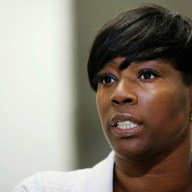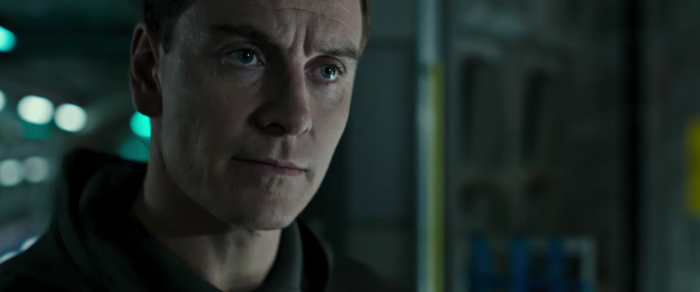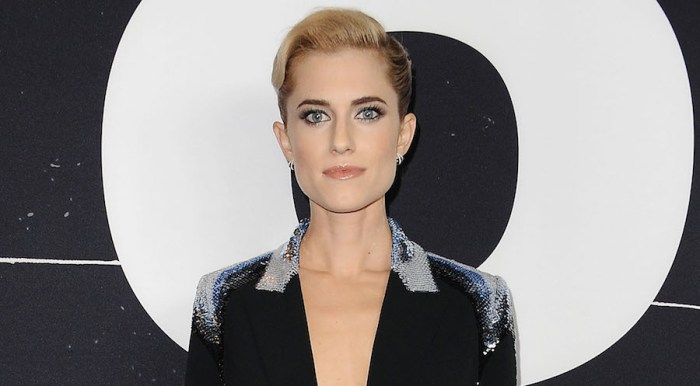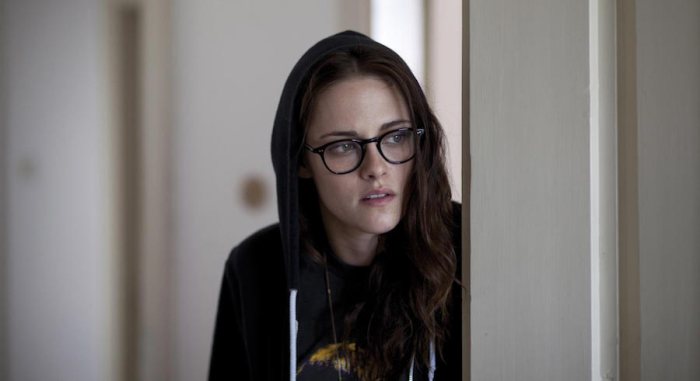In 1943, when Paul Verhoeven was five, his family moved to The Hague, the location of the Nazi’s Netherlands headquarters. He would traipse down the street, hand-in-hand with his father, past stacks of dead bodies. In an interview from Cannes, he recalled how he didn’t realize a world without war was even possible until after the liberation. This moribund adolescence left a lingering influence on his art. The oppression of fascism, of capitalistic selfishness, bigotry and sexual violence and anti-Semitism and homophobia — these horrors permeate his films, albeit sometimes abstractly, and often comically. His new film, Elle, his first full-length feature in a decade, and his first in French, is a pitch-black comedy of bourgeois manners, starring Isabelle Huppert as a rape survivor. An exhaustive retrospective of Verhoeven’s work, called “Total Verhoeven,” is playing at the Film Society of Lincoln Center. We talked to Verhoeven while he was here for “Elle”‘s appearance at the New York Film Festival.
How are you enjoying New York? RELTED: Review: “Elle” finally pairs Isabelle Huppert with Paul Verhoeven Are you concerned that American viewers will misunderstand or ignore the humor in the film, especially in light of Donald Trump and rape culture? It’s a very funny movie. The marketing is suggesting that this is an erotic thriller, like “Basic Instinct,” but it’s not erotic or a thriller. But the rape scenes are not funny. Isabelle Huppert gives what might be the best performance in any of your films, and you’ve had some good ones. You got a performance out of Arnold Schwarzenegger, who has all the dramatic range of a skirt steak. “Basic Instinct” is called Hitchockian, with its psychosexual femme fatale, but it has such clear satirical notes about gender. Which is your favorite? Wait, you don’t think the Mount Rushmore scene of “North By Northwest” is good? A lot of directors are obviously inspired by his aesthetic, but not too many really get at his psychosexual themes the same way. It’s funny that you say “macho.” I think “Total Recall” is, ostensibly, a macho dumbing down of a Philip K. Dick mindf— story cause the genre requires it, but you literally have Arnold f— his own mind with that mechanical sex toy-looking apparatus going up his nose. It’s a fun play on Arnold’s macho persona. “Total Recall” still looks good; as they say it’s aged well. But the remake, which you had nothing to do with, looks awful. So many of your films have had awful sequels and remakes. The beauty of my “RoboCop” is that he doesn’t know! You never get into this heaviness of an amputee. The writers of the original “Robocop” didn’t get into that heaviness. The search for the lost paradise is there, elements of his brain are still there, of course, his family and all that stuff, but he says, “Ah, I cannot reach it!” And they took that all out. And they made it very serious! The story is very silly, of course, and they made it very serious and it collapsed. They don’t want it to be too difficult and everybody should like it and it should be PG-13 and it’s really about how much money we put into the movie and how much money we get out of the movie. I think if you reduce capitalism to all its good and bad things, when you reduce it to the bottom line, it’s really how much money can we make here. Money! Without any other values, without the values of art! Without cultural or intellectual aspects on at least some level. They just eliminate all that and everything that is offensive to anybody is cut out, anything that’s a little disturbing to anybody should be out. I think you reduce film to nothing more than a capitalist instrument. That’s what’s happening in Hollywood now. Money. I mean, the R-rating is nearly eliminated in Hollywood, isn’t it? So, you’re not a fan of the Marvel movies, I take it. If some studio head said, “Hey, let’s give Paul Verhoeven a superhero movie,” would you do it? “Elle” has an almost Bunuelian look at bourgeois life. A comedy of rich people manners, especially in the dinner scene. Follow Greg Cwik on Twitter @GregCwik1
It’s really a big city, yeah? It has something, when you leave the airport, especially in the evening, when you approach the city and cross the river and all that stuff… it’s just a phenomenal view, but it’s also a bit threatening, yeah? Like, I remember the first time I saw New York, I mean 30 years ago, and I’m going, “My God, this is like going into Fritz Lang’s “Metropolis.” It looks like that. You know that film? Very German expressionist movie. In fact, the costume of RoboCop is a male version of the “Metropolis” robot character, who is a female in that movie. A female robot.
Well, yeah, it’s very funny. The New York audience that saw the film yesterday [the New York Film Festival Press screening] was interesting to compare because I went to Toronto, I went to Spain, and London, and Paris. I mean, the reactions of the audience here during the funny parts, I noticed immediately, are more like the French. The reactions in Cannes to the funny details, certainly with the baby and all that stuff, the reactions of the audience in New York were really comparable to Cannes. Much more like Cannes than Holland or Belgium or even London, where they’re much more restrained. Here, they picked up on the humor and laughed. They laughed at the first funny element, when the son gives [Huppert] the photograph of the pregnant girlfriend, and he puts it on the little table, and basically she [Verhoeven picks up my phone and hides it behind a jar of jelly beans] hides it. In London, no one laughed. Here, people started to laugh.
It’s not! I don’t know why, you have to ask [distributor] Sony Classics about that. I think the Hollywood Reporter called it “a rape comedy,” which is… I don’t know. Rape-slash-comedy.
They’re very serious! The idea, my idea, was basically to avoid genre. There was no possibility to put it in any genre. You could have pushed it into the thriller genre, if you want, but if you look at the Christmas dinner scene, which is 60 minutes into the movie, the thriller is gone! For 12, 13 minutes there’s nothing about a thriller there. At all. There’s no threat of death — just people. Realizing that, I felt that to make it a thriller, to make the third act about revenge, would have made it an American movie. It’s a very French movie. I compared it myself — without copying of course — but I compared the lack of genre, the combination of comedy, tragedy, cruelty, to a movie I admire very much, the 1938 noir called “The Rules of the Game.” It has all these elements, but it doesn’t say it’s this or that. There’s this, then there’s that, and there’s this and there’s that. Life has no genre, I say. From early morning to late evening, life goes through a lot of genres! I think that was the beauty of the project. It’s all the genres of life without favoring any of them. I used them all.
The last two films I made, “Black Book” and this, there’s a female protagonist. But of course, I started my life with male protagonists played by Rutger Hauer. I always saw Rutger Hauer as my Matroianni to Fellini. For me, Rutger was that way. I discovered him when he was very young when I was working for television and he was playing, let’s say, Dutch Ivanhoe, a version of that. I’d been working with him until “Flesh+Blood,” when we got into a fight and it destroyed our relationship. But at that time, I was more into male protagonists than female, yeah. That’s changed in the last 10 years. Now people are looking at that and, of course, also the performance of Sharon Stone in “Basic Instinct,” it’s all about your portrayals of “strong women.”
I mean, I’m not Hitchcock, of course. But, of course, I’m a fan of Hitchcock, a student of his. I’ve been studying him my whole life. I think I’ve seen everything and I still watch his movies all the time, for my pleasure and to see how he did it. I mean, he’s the visual director.
That changes with time. Of course, it was originally “Vertigo,” when I was 16 or 17 and I thought, “Wow, this is art, yeah? It’s not entertainment, it’s art!” Well, it’s also entertainment, of course, but it is also art. The elegance of “Rear Window” is also phenomenal. The ending is a bit weird, with the costumes and photography and point of view and… [getting exasperated] It’s so good. I’m also a fan of “North by Northwest,” but I think, again, the ending is not so good, with the statue part. [Ed. He meant to say Mount Rushmore]
[Sternly] No. [Leans closer] They could not do that in reality, you know? It is all fake. I mean, they use big photographs, you can see how fake it is. And there is nothing interesting happening, really. The music of Herrmann pulls you through it, eh? But if you take the music out, you really, really, really see there is not any interesting material in that scene. The best part is when he grabs her and [Verhoeven rises from his seat, reaches out emphatically towards me with an outstretched hand] pulls her into the train. That’s the best scene. She falls and he grabs her and the train goes into the tunnel, and he pulls her and the train goes psht! into the tunnel — yeah, sure. No, but the beauty of “North By Northwest” is when Cary Grant goes to that house and the bad guys pick him up or whatever and bring him to that house and James Mason and the way that the house is filtered and the music and it’s all a bit mysterious and strange and … fantastic!
I think both Hitchcock and I were probably really liking women, ya know? I like women very much. Basically, I feel very comfortable with women. I really have said many times I prefer to have a coffee with a woman than a beer with a man. I feel more at ease, I’m more honest with women, there’s no competition, no macho stuff. [He pours a glass of water.] But Hitchcock is certainly a big influence on me, yeah.
Arnold is vulnerable in the movie, eh? He’s never vulnerable. Even in the scene where the doctor comes in and goes, “You think you’re here on Mars? Well, haha, you’re not!” I mean, Arnold is very vulnerable there, yeah? And Arnold is a great guy to work with, in fact. Probably the most dedicated… well, Isabelle is dedicated, too, but Arnold! Arnold is the most dedicated guy I’ve worked with. He works very, very hard. He’s willing to try everything to make the movie work. And he has no ego. I could say to Arnold, “That scene doesn’t look good. Watch this video, it’s not good, what you’re doing. Let’s do another take,” and he would take direction. I mean, he’s obviously not a trained actor in any way, but his really wanting to get the best out of himself and out of everybody is rare.
It’s difficult. I don’t know why, but the American studios will just get rid of all my irony and humor and satire and whatever you want to call it. The remakes always take that out. Studios think it should be played straight. “RoboCop” was a terrible mistake; in the new version, they make his brain still the same after the explosion. I mean, come on. You’re making a movie about one of these soldiers who loses limbs, which is horrible enough, and he’s fully aware of his amputations. That’s really what you’re talking about here.
[Laughs, shakes head]
If I could add some other level to it, but if it’s the same as whatever those other people are doing right now, then no. No! I’m not saying it’s not possible, but, like, when they wanted to pit Batman against Superman [laughs, hands flailing] My God! They must have thought that’s such a great idea, but it’s such a capitalist idea. And it failed, I felt. But it’s just a reduction of film to only a capitalist tool, and it’s really depressing to me. It’s not all over the world, and even in the United States there are some good ones. “The Big Short,” still a good movie, yeah? “The Big Short,” good movie! I really like that movie. To make a movie about such a complex banking situation accessible, they did it so well, with the girl and the banks. I think it should’ve won an Oscar for that, but instead they gave the Oscar to “Spotlight,” and I have no idea why.
Yeah, yeah, sure, sure. That’s by purpose, absolutely. I worked on it, but it came naturally. I felt that it was there, maybe vaguely, in the book when I started work on it. But that’s basically me intruding on the narrative with David Birke, the writer, understanding exactly what I was talking about. The book is very associative, all da da da da, and David and I made that into scenes. There are two big dinners in the book, and we made it into one dinner scene. Two was too many. In a book that’s fine, but in a movie having the same 10 people having dinner twice is too much, I think. We did a lot of that stuff, smashing things together. There are a lot of elements we added. We added a lot of ambiguous elements: Is this real, is this a game? Is he going to kill her? Does she know? We added all that.
Paul Verhoeven talks ‘Elle’ and how Hollywood really is now all about money
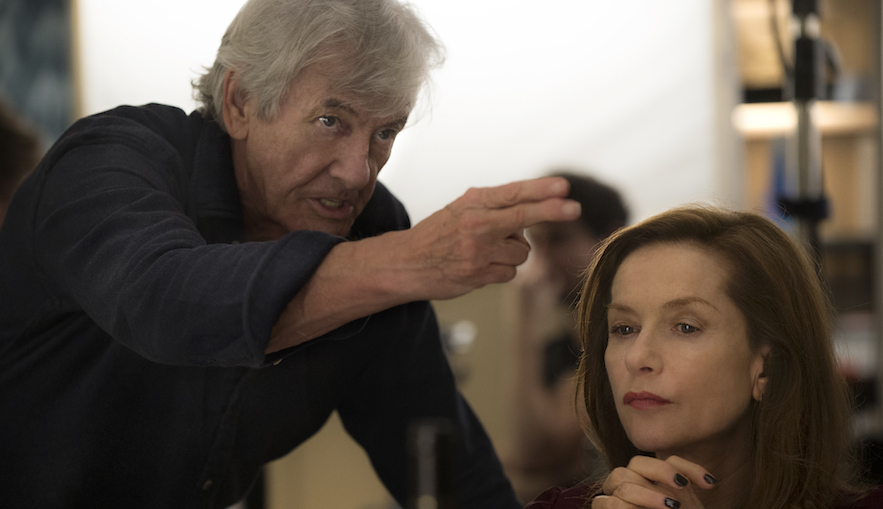
Getty Images










